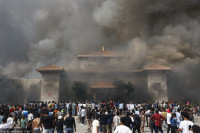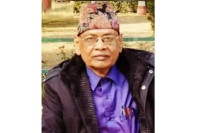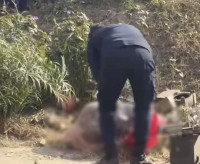Valley
LMD struggling to dispose of expired drugs
The Department of Health Service (DHS) in Teku is struggling to dispose of around 3,000 kilograms of expired drugs—tablets and liquids—for the lack of proper technology.
The Department of Health Service (DHS) in Teku is struggling to dispose of around 3,000 kilograms of expired drugs—tablets and liquids—for the lack of proper technology.
These medicines had arrived in Nepal in the aftermath of earthquakes last year.
Incineration is said to be the best way to dispose of unwanted pharmaceuticals. Cement factory furnaces can be used to get rid of such expired drugs as they should be incinerated at a temperature above 1,200 degrees Celsius.
However, cement industries have not been of much help, as they have cited some technical reasons not to dispose of these unwanted medicines, according to officials. The amount of such unwanted pharmaceuticals are though said to be around 3,000 kilograms, exact figure was not available.
These items had arrived in Nepal through Tribhuvan International Airport or other border points after last year’s earthquakes.
Most of them were near their expiry date when they arrived in Nepal, and by the time they were cleared from customs, they were already of no use.
The DHS has kept these unwanted pharmaceuticals at its Logistics Management Division (LMD) at Teku.
“We have been segregating tablets and liquid. Certain amount of these unwanted drugs were disposed of at a factory of Shivam Cement in Hetauda recently,” said Dr Bhim Singh Tinkari, director of LMD.
“Now we are reaching out to some other factories, but they have brought up some technical issues.”
Dr Tinkari said lack of incinerators has been a major hurdle.
If not disposed safely and scientifically, they could pose a serious public health hazard and affect the environment.
Dr Tinkari said a huge quantity of these pharmaceutical were not claimed at the airport following their arrival. The Department of Customs even tried to auction them. But eventually they landed at the LMD.
“Our information management was weak. We could not communicate properly about the pharmaceuticals that we needed,” said Dr Tinkari. “Some of the drugs that had arrived here were never registered with the Nepali government and had to be left unused.”
On some of the pharmaceuticals, information were given in different languages due to which health workers were not comfortable administering them to the patients, according to Dr Tinkari.




 5.39°C Kathmandu
5.39°C Kathmandu










